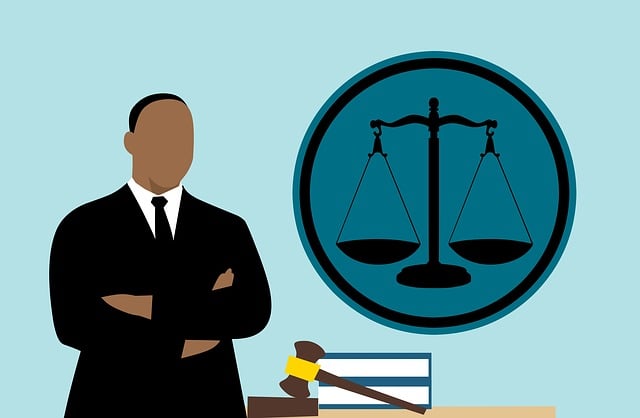Traditional DUI penalties often fail to address long-term consequences or underlying issues like addiction. Alternative sentencing focuses on rehabilitation and community reintegration through personalized options like diversion programs, community service, electronic monitoring, and addiction treatment. These approaches decrease recidivism rates, promote accountability, and offer targeted strategies for behavioral change. Community service connects offenders with community impact and fosters empathy, while drug and alcohol treatment programs provide comprehensive care to break the cycle of addiction. Restorative justice methods engage both offenders and victims, promoting understanding, apologies, and reconciliation for deeper remorse and reduced repeat offenses.
In the pursuit of a more just and effective approach to DUI offenses, exploring alternative sentencing options is paramount. Traditional sentences often fall short in addressing the root causes behind these incidents, such as addiction or underlying social issues. This article delves into a comprehensive overview of alternative sentencing methods, focusing on community service, drug treatment programs, restorative justice, and more. Understanding these alternatives empowers stakeholders to advocate for safer communities while offering support tailored to DUI offenders’ unique needs.
- Understanding Traditional DUI Sentences and Their Shortcomings
- Exploring Alternative Sentencing Options: A Comprehensive Overview
- Community Service: A Hands-On Approach to Rehabilitation
- Drug and Alcohol Treatment Programs: Breaking the Cycle of Addiction
- Restorative Justice: Healing for Both Offenders and Victims
Understanding Traditional DUI Sentences and Their Shortcomings

Traditional sentences for DUI (driving under the influence) offenders often include fines, license suspension, and even imprisonment. While these measures aim to deter future offenses, they have several shortcomings. Firstly, harsh penalties can lead to significant financial burdens for offenders, especially those from lower socio-economic backgrounds. This may result in long-term negative impacts on their lives, including difficulties in maintaining employment and housing stability. Secondly, lengthy incarcerations disrupt families and communities, creating a ripple effect that extends beyond the immediate offender.
Moreover, traditional sentencing approaches fail to address the underlying causes of DUI, such as alcohol addiction or mental health issues. As a result, offenders may reoffend after release due to lack of support and treatment, perpetuating a cycle of crime. Alternative sentencing for DUI offenders, therefore, presents a promising approach by offering more personalized, rehabilitative options tailored to individual needs.
Exploring Alternative Sentencing Options: A Comprehensive Overview

In the quest for effective and humane justice, exploring alternative sentencing options for DUI (Driving Under the Influence) offenders has gained significant traction. This approach moves beyond traditional penalties, offering a more holistic perspective on rehabilitation and community reintegration. By considering alternatives such as diversion programs, community service, electronic monitoring, or participation in addiction treatment, courts can tailor sentences to address the unique needs of each offender.
A comprehensive overview reveals that these alternative sentencing methods not only reduce recidivism rates but also foster a sense of accountability among DUI offenders. Diversion programs, for instance, divert first-time offenders from formal prosecution, providing them with educational resources and support groups to address underlying issues contributing to their behavior. Community service projects ensure active involvement in the community, promoting a sense of responsibility while helping to repair the harm caused by impaired driving. Ultimately, these alternatives strive to break the cycle of DUI offenses by offering targeted interventions that promote long-term behavioral change.
Community Service: A Hands-On Approach to Rehabilitation

Community service is an alternative sentencing option that offers a hands-on approach to rehabilitation for DUI offenders. Instead of traditional punishment, individuals convicted of DUI can be ordered to perform unpaid work for local organizations or government agencies. This method allows them to give back to their communities while developing a sense of accountability and learning valuable skills. The experience often involves tasks such as cleaning public spaces, assisting at soup kitchens, or participating in youth programs, providing a practical understanding of the impact of their actions.
By engaging in community service, DUI offenders can gain a new perspective on their behavior and its consequences. They interact with members of the community who have been affected by drunk driving, fostering empathy and potentially changing their outlook. This form of sentencing also promotes personal growth, as individuals take pride in contributing to positive changes within their neighborhoods. It offers a more constructive path towards recovery, moving beyond punishment to address the underlying issues that led to the DUI offense.
Drug and Alcohol Treatment Programs: Breaking the Cycle of Addiction

Drug and Alcohol Treatment Programs play a pivotal role in the journey towards rehabilitation for DUI offenders. By offering comprehensive care, these programs aim to break the cycle of addiction that often contributes to repeat offenses. Through individualized therapy sessions, group support, education on substance abuse, and aftercare planning, participants gain the tools necessary to manage their addictions effectively.
Many alternative sentencing options for DUI include mandatory or voluntary treatment programs as a condition of probation. Such interventions not only promote public safety by reducing the risk of future impaired driving but also empower individuals to take control of their lives, fostering personal growth and long-term recovery. Effective treatment can help DUI offenders turn their lives around, steering clear of the legal consequences and detrimental impacts associated with repeated alcohol or drug-related offenses.
Restorative Justice: Healing for Both Offenders and Victims

Restorative Justice approaches in the context of Alternative Sentencing for DUI offenders offer a powerful tool for healing and rehabilitation. By focusing on the harm caused by drunk driving and involving both the offender and victim, these methods foster a sense of accountability and promote positive change. Restorative practices encourage open dialogue, empathy, and understanding between all parties involved, which can lead to deeper apologies and more meaningful reconciliation.
This process goes beyond traditional punitive measures, aiming to restore balance within communities affected by DUI incidents. Through face-to-face meetings, community service, or restorative conversations, offenders gain a deeper comprehension of the impact of their actions on others’ lives. Such experiences can inspire genuine remorse and motivate individuals to make better choices in the future, ultimately reducing repeat offenses and fostering a safer society.
In exploring alternative sentencing options for DUI offenders, we’ve seen a shift towards more holistic approaches that address not just punishment but also rehabilitation. Community service, drug and alcohol treatment programs, and restorative justice initiatives offer promising paths to healing and reintegration, potentially reducing recidivism rates. By embracing these innovative strategies, the criminal justice system can foster a safer society while acknowledging the complexities of DUI offenses. Implementing alternative sentencing for DUI offenders is a step towards creating a more just and effective criminal justice framework.






